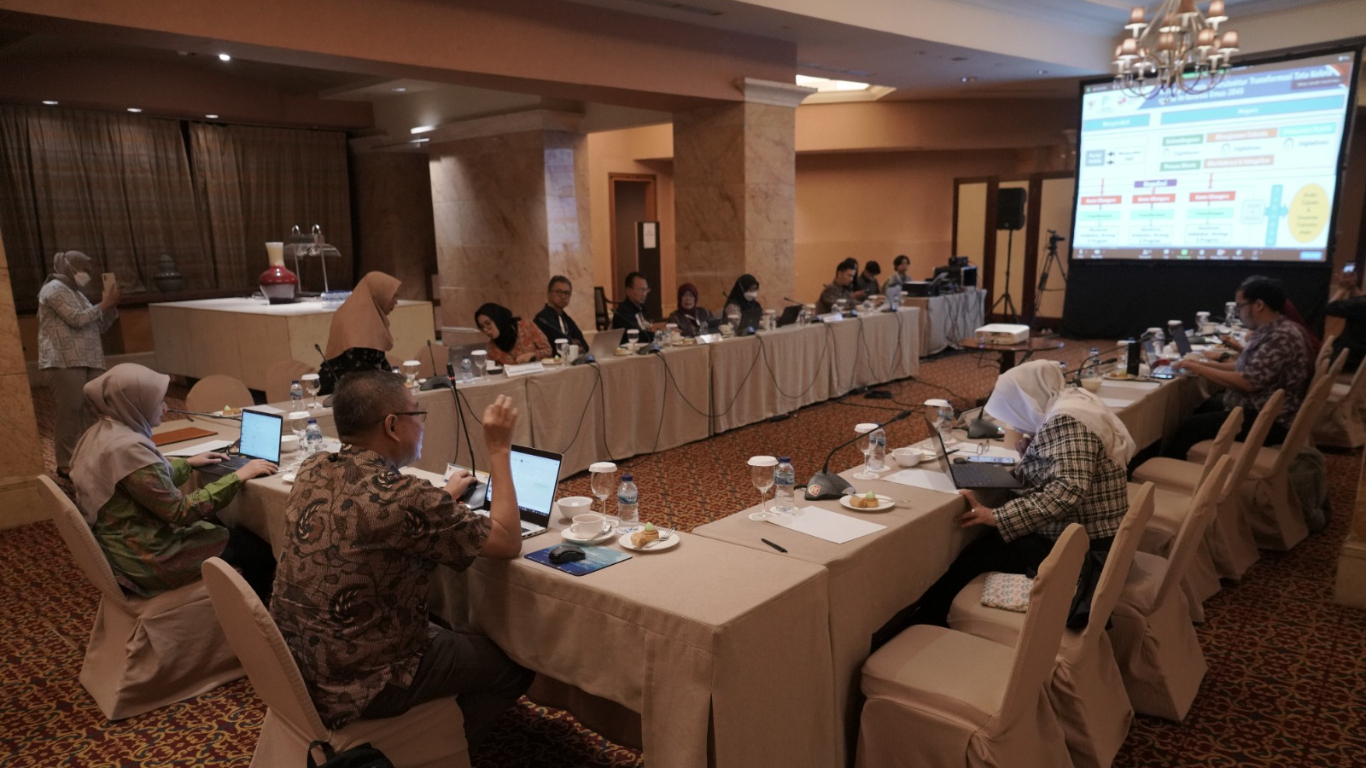Bappenas Synergizes with Related Ministries and Institutions Over 2025-2045 RPJPN
Development News - Thu, 01 June 2023

The Ministry of National Development Planning/Bappenas has ensured that the preparation of the 2025-2045 National Long-Term Development Plan (RPJPN) is in line with the work plans of all ministries and agencies.
Bappenas’ Main Secretary Taufik Hanafi said that the 2025-2045 RPJPN is expected to become a guideline for all development plans in Indonesia. For this reason, long-term development goals between ministries/agencies must be realized.
“The approach we took in compiling the 2025-2045 RPJPN is inclusive and participatory to ensure that the long-term document truly belongs to the entire Indonesian nation because it is implemented by all components of the nations,” Taufik explained in the Focus Group Discussion of the 2025-2045 RPJPN Initial Draft on Wednesday (31/5).
The 2025-2045 RPJPN is the direction for Indonesia’s development planning for the next 20 years, as a way to achieve the goals outlined in the Indonesia 2045 Vision. For this reason, development planning must be carried out comprehensively, carrying out the synergy of all sectors to accelerate Indonesia’s development.
The broad dimensions of development that are cross-sectoral and regional in nature must also be well coordinated so that policies from the central to the regional levels can be implemented. Various inputs, suggestions, responses and policy recommendations are very important to sharpen and deepen the direction of Indonesia’s development in the next 20 years.
“The purpose of this FGD, apart from outreach, is also to collect input in the preparation of the RPJPN’s drafting,” Taufik added.
Moreover, transformation efforts are needed to encourage Indonesia’s development. Taufik added further that it was not enough just to reform, but efforts must also need significant transformation if the goals of the Indonesia 2045 Vision are to be achieved.
“We need to make very significant intensity changes, because it is not enough if only from business-as-usual efforts. Therefore, the presence of ministries/agencies is a very important approach,” Taufik said.
Meanwhile, Bappenas’ Deputy of Human, Community, and Cultural Development Amich Alhumami said that in encouraging the transformation of Indonesia, improving the quality of human resources is needed, as well as improving the quality of health and education so as to increase national productivity.
“Improving the quality of human resources through health and education is important so that our population is able to secure more middle-to-high quality jobs. It is then that our productivity can increase,” concluded Amich.
